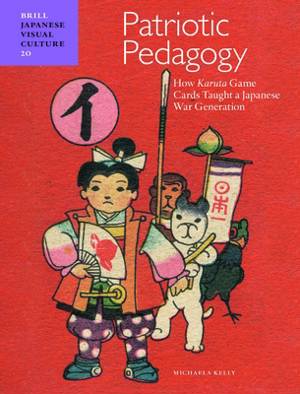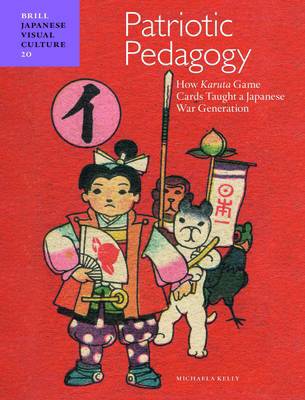
- Afhalen na 1 uur in een winkel met voorraad
- Gratis thuislevering in België vanaf € 30
- Ruim aanbod met 7 miljoen producten
- Afhalen na 1 uur in een winkel met voorraad
- Gratis thuislevering in België vanaf € 30
- Ruim aanbod met 7 miljoen producten
Zoeken
Patriotic Pedagogy: How Karuta Game Cards Taught a Japanese War Generation
Michaela Kelly
€ 245,95
+ 491 punten
Omschrijving
During the Fifteen Year War, Japan's 'little citizens' were educated via a curriculum centering patriotic and militarist ideologies. Patriotic Pedagogy: How Karuta Game Cards Taught a Japanese War Generation, explores karuta, a poetry card game developed in this period as progressive early childhood pedagogy. As karuta became popular as an educational toy, educators and publishers soon noted karuta's engaging physical play and short slogans and poems made them ideal for conveying patriotic ideals to children.
Including reproductions of the images and translations of the poems, Kelly offers an analysis of the race, class and gender ideologies the cards conveyed, suggesting that these semingly innocuous children's toys were effective tools of a propagandist pedagogy.
Including reproductions of the images and translations of the poems, Kelly offers an analysis of the race, class and gender ideologies the cards conveyed, suggesting that these semingly innocuous children's toys were effective tools of a propagandist pedagogy.
Specificaties
Betrokkenen
- Auteur(s):
- Uitgeverij:
Inhoud
- Aantal bladzijden:
- 224
- Taal:
- Engels
- Reeks:
- Reeksnummer:
- nr. 20
Eigenschappen
- Productcode (EAN):
- 9789004466890
- Verschijningsdatum:
- 25/11/2021
- Uitvoering:
- Hardcover
- Formaat:
- Genaaid
- Afmetingen:
- 190 mm x 249 mm
- Gewicht:
- 737 g

Alleen bij Standaard Boekhandel
+ 491 punten op je klantenkaart van Standaard Boekhandel
Beoordelingen
We publiceren alleen reviews die voldoen aan de voorwaarden voor reviews. Bekijk onze voorwaarden voor reviews.











